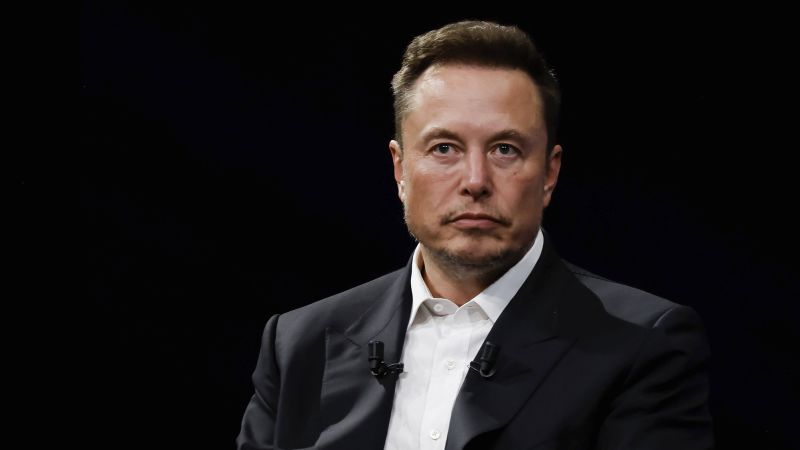Elon Musk should be forced to testify in an expansive US government probe of X, the company formerly known as Twitter, the US government said.
The government said mass layoffs and other decisions Musk made raised questions about X’s ability to comply with the law and to protect users’ privacy.
The US government’s attempt to compel Musk’s testimony is the latest turn in an investigation that predates Musk’s acquisition of X that has intensified due to Musk’s own actions, according to a court filing by the Justice Department on behalf of the Federal Trade Commission.
The court filing dated Monday cites depositions with multiple former X executives, including its former chief information security officer and former chief privacy officer, who testified that a barrage of layoffs and resignations following Musk’s $44 billion takeover may have hindered X from meeting its security obligations under a 2011 FTC consent agreement.
Twitter and its outside attorney didn’t immediately respond to a request for comment.
According to testimony cited in the filing, there were so few employees left after the departures that anywhere from 37% to 50% of the company’s security program lacked effective management and oversight, with no one available to take responsibility for those controls. Other planned upgrades to the company’s security program were “impaired,” the filing said, citing a deposition by the former chief information security officer, Lea Kissner.
In another example, Musk personally tried to rush the rollout of Twitter Blue, the company’s paid subscription service, the filing said. That forced the company’s security team to bypass the required security and privacy checks that were a part of Twitter’s own policies and that had been mandated in the FTC order, according to the testimony of Damien Kieran, the former chief privacy officer.
The filing also alleges that Musk’s move to grant several journalists access to internal company records — access that would culminate in the so-called Twitter Files claiming to show evidence of politically motivated censorship — initially involved a plan that could potentially have led to the exposure of private user data in violation of the FTC order.
According to the filing, Musk’s plan originally called for providing access through a dedicated company laptop with “elevated privileges beyond just what a[n] average employee might have.”
“Longtime information security employees intervened and implemented safeguards to mitigate the risks,” the filing said, but even then, the former employees testified, the process raised doubts about Musk’s commitment to privacy and security.
X has moved to block Musk from being forced to testify and has asked a federal court to invalidate the entire FTC order requiring it to safeguard user privacy, accusing the FTC of asking too many questions in its probe.
But in its filing, the US government said its interest in Musk’s testimony is well-justified based on the appearance of a “chaotic environment” at X driven by “sudden, radical changes at the company” following Musk’s acquisition.
“The FTC had every reason to seek information about whether these developments signaled a lapse in X Corp.’s compliance” with the 2011 order, the filing said. Confirmed violations of the FTC order could lead to billions of dollars in fines for X, as well as potential legal ramifications for individual executives such as Musk if they are deemed personally responsible for them.
The FTC investigation traces back to bombshell allegations — raised by Twitter’s former security chief Peiter “Mudge” Zatko and predating Musk’s acquisition — that for years Twitter has failed to live up to its legally binding commitments to the FTC to protect user privacy and security. Those allegations were first reported last year by CNN and The Washington Post.
The investigation has proven politically charged as Musk — and his allies including Republicans on the House Judiciary Committee — have responded to the probe by publicly accusing the FTC of harassment and overreach.
Read the full article here










